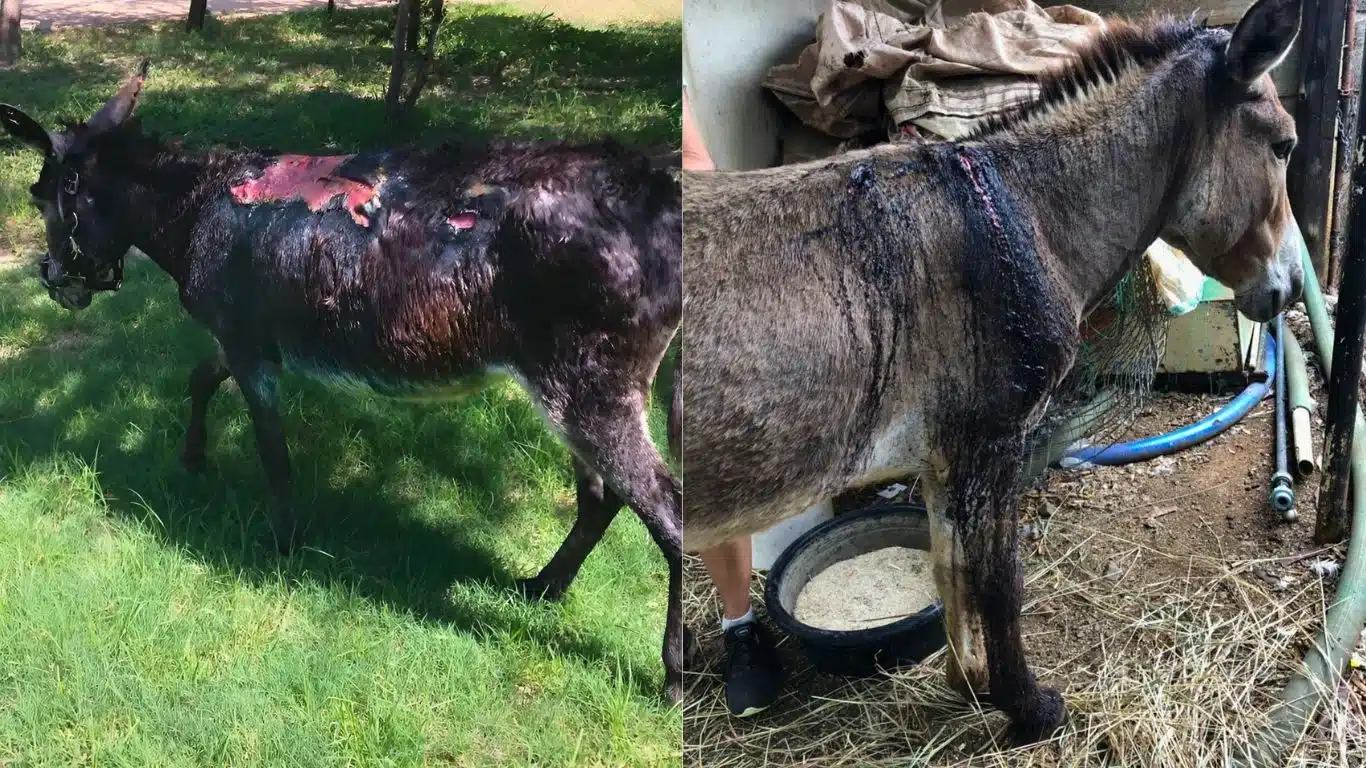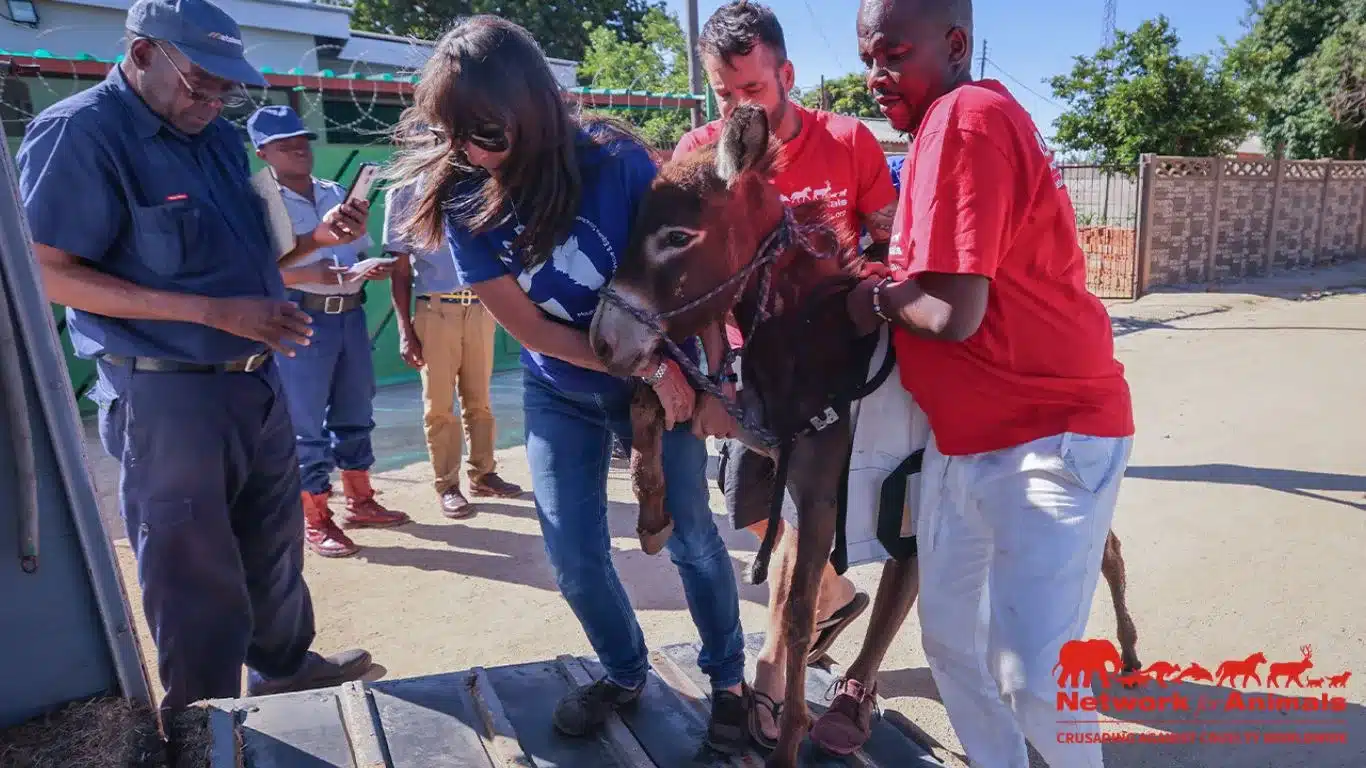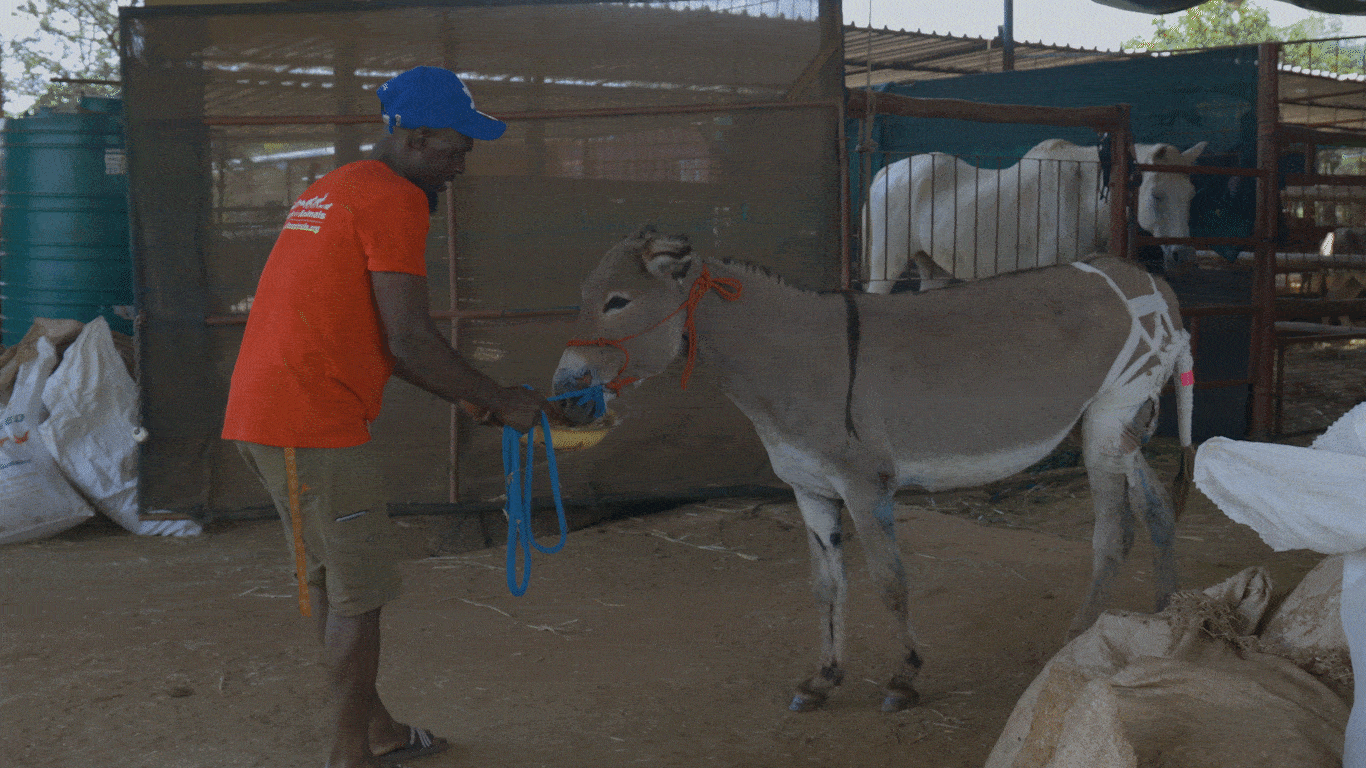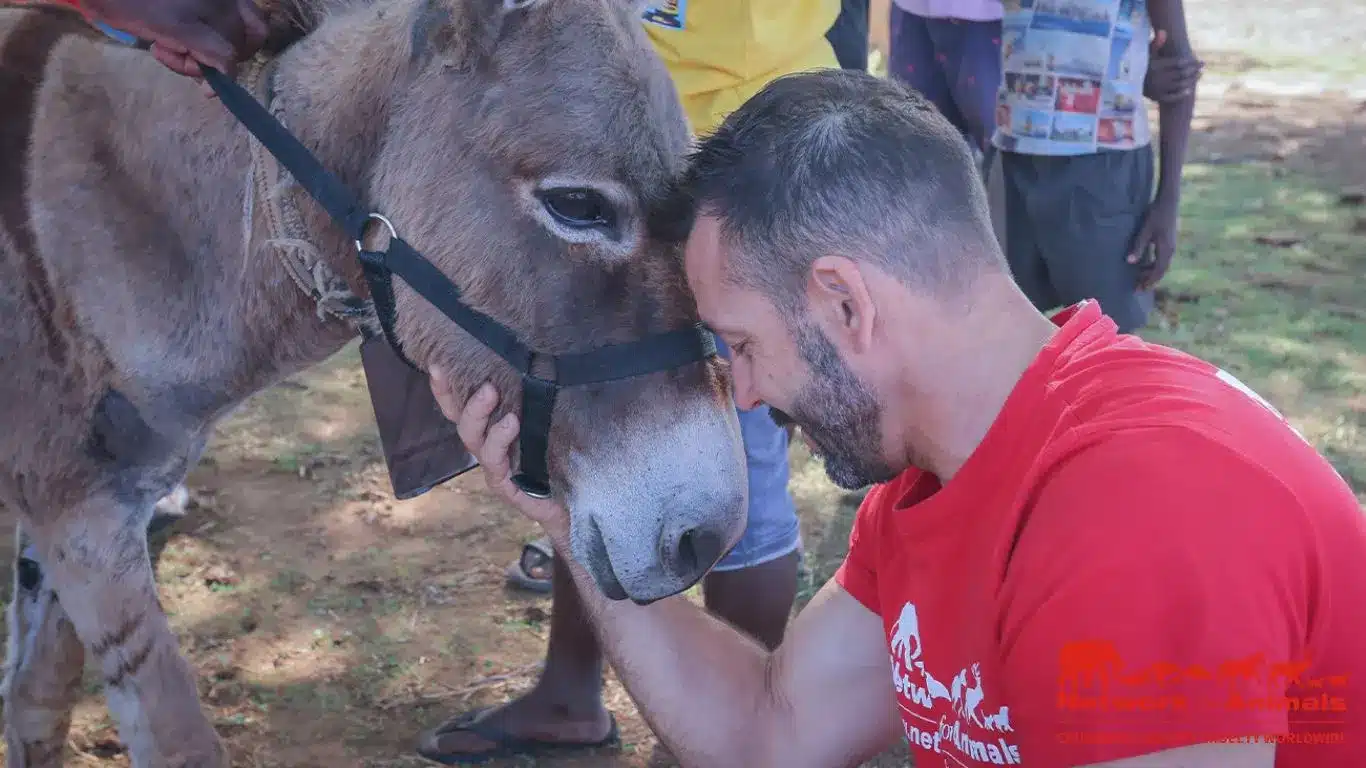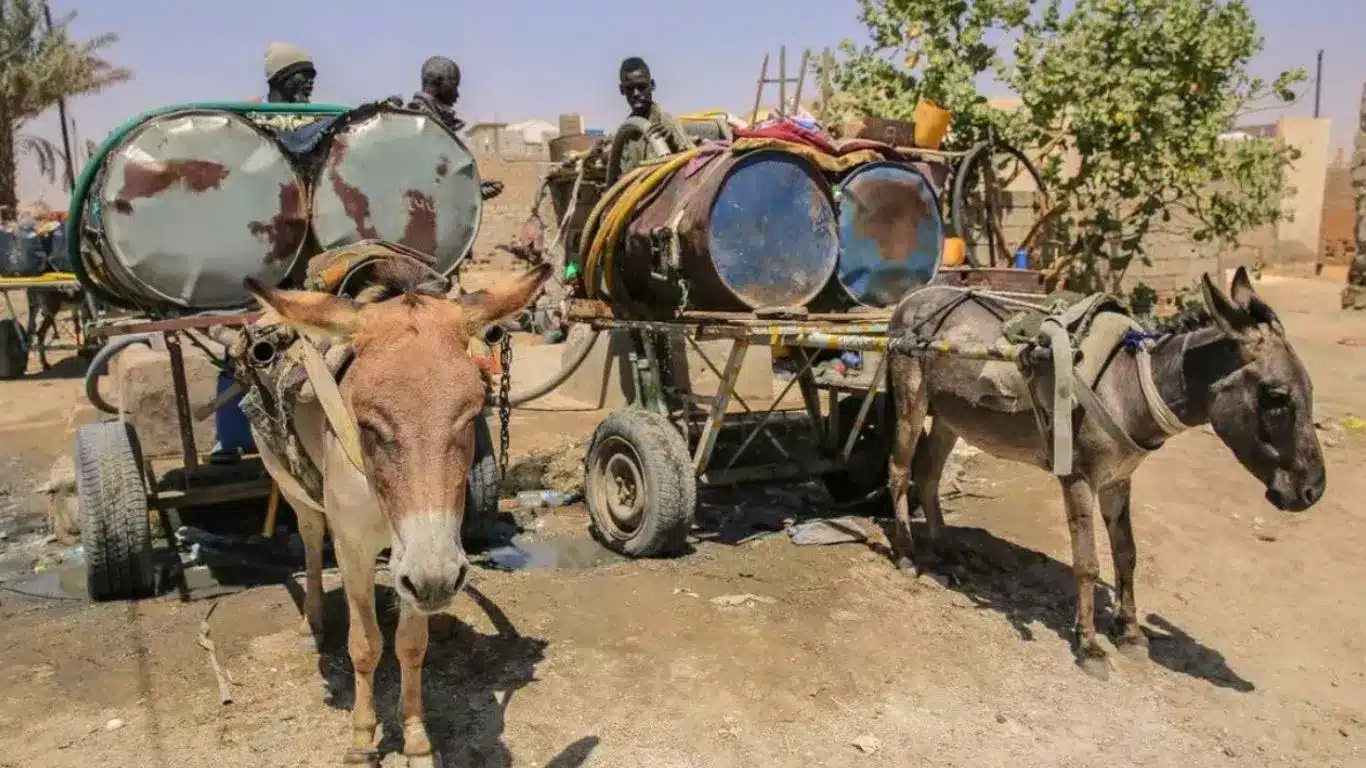In Zimbabwe’s rural communities, donkeys are truly beasts of burden – used to carry water, haul firewood, transport heavy goods and sustain families barely surviving in one of the world’s most miserable economies.
For many of the country’s donkeys, it is a life of silent suffering and pain.
Some people treat their donkeys as little more than machines. These helpless animals are whipped, overworked, underfed and often abandoned when they collapse from exhaustion, left to die on the roadside. Some are attacked by wild animals – including lions and hyenas.Since 2018, Network for Animals has supported the Matabeleland Animal Rescue and Equine Sanctuary (MARES), a remarkable grassroots organisation that travels hundreds of miles across the country to save donkeys who have been beaten, broken or left behind.
In two sanctuaries, our partner cares for more than 100 donkeys, 15 horses, 45 cats and dogs, and a variety of other animals in need, including tortoises, peacocks, rabbits and more. Here, these rescued animals are given a second chance at life.
Zimbabwe is rife with donkey abuse and neglect. Credit: MARES
MARES does more than rescue animal victims — they prevent suffering before it begins.
Through their donkey welfare outreach program, MARES supports 400 working donkeys in some of Zimbabwe’s poorest communities. With support from NFA, the team provides a range of crucial, life-saving services, including:
- vaccinations against rabies and tetanus
- wound treatment and emergency veterinary care
- food relief and emergency support during drought or economic crisis
- padded, humane harnesses to replace rope and wire
- donkey welfare training for owners and children
- regular deworming and parasite control
Injured donkeys are taken to the sanctuary for medical care. Once they have fully recovered, they are either returned to their owners or given a permanent home at MARES. Credit: NFA
These donkeys are essential to the survival of hundreds of people, most of whom are too poor to give their animals the care they deserve. Without our team, they would be forgotten, neglected or worked to death.
Now, as the dry winter season sets in, a new crisis is threatening more than 500 donkeys that rely on MARES.
As Zimbabwe enters a prolonged dry season, grass is vanishing and hay prices are skyrocketing. Three years ago, $1,200 (£890) bought 600 bales. Today, it buys just 300.
To survive winter and keep all the donkeys and horses fed, MARES must purchase 10,000 bales of hay – at a staggering cost that they are struggling to meet.
Injured or sick, the donkeys at MARES require food to make a quick recovery. Credit: NFA
We face other challenges too – wild animal attacks are becoming more frequent; rabies has broken out; and so many new cases are coming in that paying the vet bills is a daunting challenge.
We have worked hard for many years to help Zimbabwe’s donkeys and the reality is that without the help of animal-lovers like you, the team will soon have to choose between saving injured, traumatized donkeys or feeding the animals at their sanctuary.
These kind creatures deserve food, vet care and love–will you help them? Credit: NFA
Here’s how your donation can help save lives:
- $15 (£12) feeds a donkey for a week
- $35 (£26) helps treat injuries, parasites or illness
- $100 (£75) vaccinates 50 donkeys against rabies
- $250 (£185) provides food and vet care for multiple animals for a month

